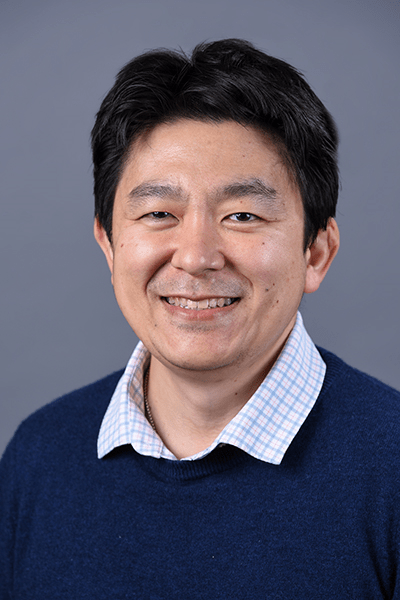
Scott T. Aoki, PhD
Assistant Professor of Biochemistry, Molecular Biology & Pharmacology
- staoki@iu.edu
- Phone
- (317) 278-3464
- Address
-
635 Barnhill Drive
MS 4071F
Indianapolis, IN 46202 - PubMed:
-

Bio
Dr. Aoki received his PhD in Virology from Harvard University studying Rotavirus assembly and cell infection with Prof. Stephen Harrison. He did his postdoc with Prof. Judith Kimble studying the molecular mechanisms of C. elegans RNA-protein complexes in germ cell development. He joined the Department of Biochemistry and Molecular Biology at Indiana University School of Medicine in 2019. His research group uses structural biology and develops new methods in C. elegans to investigate the molecular mechanisms of RNA-protein complexes.
Key Publications
Aoki ST, Crittenden S, Lynch T, Bingman CA, Wickens M, Kimble J. Nematode germ granule assembly is linked to mRNA repression. BioRxiv doi.org/10.1101/382838.
Aoki ST, Porter DF, Prasad A, Wickens M, Bingman CA, Kimble J. An RNA-Binding Multimer Specifies Nematode Sperm Fate. Cell Rep. 2018 Jun 26;23(13):3769-3775.
Aoki ST, Kershner A, Bingman CA, Wickens M, Kimble J. PGL germ granule assembly protein is a base specific, single-stranded RNase. PNAS. 2016 Jan 19.
Chen JZ, Settembre EC, Aoki ST, Zhang X, Bellamy AR, Dormitzer PR, Harrison SC, Grigorieff N. Molecular interactions in rotavirus assembly and uncoating seen by high-resolution cryo-EM. Proc Natl Acad Sci U S A. 106, 10644-8.
Aoki ST, Settembre EC, Trask SD, Greenberg HB, Harrison SC, Dormitzer PR. (2009) Structure of rotavirus outer-layer protein VP7 bound with a neutralizing Fab. Science. 324, 1444-7.
For a complete list of publications, visit PubMed
| Year | Degree | Institution |
|---|---|---|
| 2010 | PhD | Harvard University |
| 2006 | DVM | University of California |
| 2002 | BS | University of California |
The Laboratory aims to understand the molecular mechanisms of how RNA-protein complexes direct cellular development and immunity. This interest began in viruses and most recently extends to understanding the functions of RNA-protein granules, collections of RNA protein complexes. The Lab is currently applying a method in C. elegans to observe protein inheritance of RNA-protein granule components between cells and progeny. This in vivo pulse chase method will allow us to track proteins made in cells and passed to daughter cells and beyond.